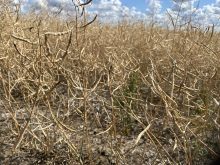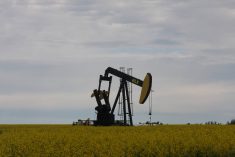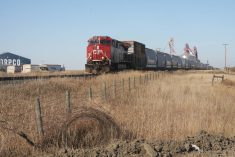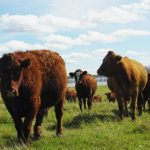ADAPT or die! I’ve heard that motto dozens of times at agriculture conferences, especially those sponsored by farm machinery companies.
But I’ve wondered lately: adapt to what, or whom?
I met an Icelandic pastor at the International Rural Church Association conference in Brandon a few weeks ago. He said that Alcan has built an enormous dam in his rural community to supply the electricity needed for aluminum refining. The communities nearby are being told to adjust, that this is the wave of the future for Iceland. And certainly aluminum smelting is boosting the country’s income overall.
Read Also

Rural emergency room closures continue to be vexing problem
Staffing issues are at the root of disruptions and closures in hospital emergency departments, both in rural and urban Canadian locations.
But Iceland is sitting on the mid-Atlantic ridge, slowly being torn apart as North American and European geologic plates separate. It is also on a volcanic hot spot with eruptions occurring every five to 10 years. It’s estimated that Iceland has generated one third of all the lava produced in the world since 1500 AD.
One-third of the country is made up of volcanic rift zones with moving fissures in the land.
The Alcan dam is built on a growing rift. Alcan assures the population that it has built dams on unstable ground before without difficulty. But there is little ground in the world that compares to Iceland. And who will pay the costs if the dam breaks? Mostly the rural communities downstream.
Perhaps it’s not to Alcan and its future that these communities need to adapt. Perhaps they should be adapting to the Icelandic geography, ecosystem and cultures that have existed there successfully for centuries. In fact those rural folks are vigorously protesting the dam and Alcan’s expansion plans.
The truth is, rural people have always been extraordinarily adaptive. They’ve had to deal with enormous natural and economic challenges. But they are also conservative in the best sense of the word. They know that simply adapting to industrial, often urban and corporate-driven agendas for “rationalizing” and “regionalizing” their communities can be extremely destructive.
Allowing lumber mills to centralize has shut down dozens of British Columbia communities. Taking up extensive high technology agriculture has led to the loss of friends, schools, hospitals, churches and most of the things that make life really worth living in many farm communities.
The 1969 federal task force on agriculture claimed that two-thirds of Canada’s farmers showed “a lack of initiative.” It said that farmers were slow to adopt new technology.
Anyone who has been to the farm equipment show in Regina knows that’s not true. But when they are cautious about taking up new technologies, it is often because they want to conserve the things most precious to them – the water and land, the people, culture, history and institutions that they treasure. They’re not willing to trade them for a handful of gold.
How about we put more energy into adapting to the land and the people who have given us life?
How about we stop adapting to the trends and agendas of those who are ripping the life out of our communities, and start resisting?
Cam Harder is associate professor of systematic theology at the Lutheran Theological Seminary in Saskatoon. He can be reached at crharder@sasktel.net.















